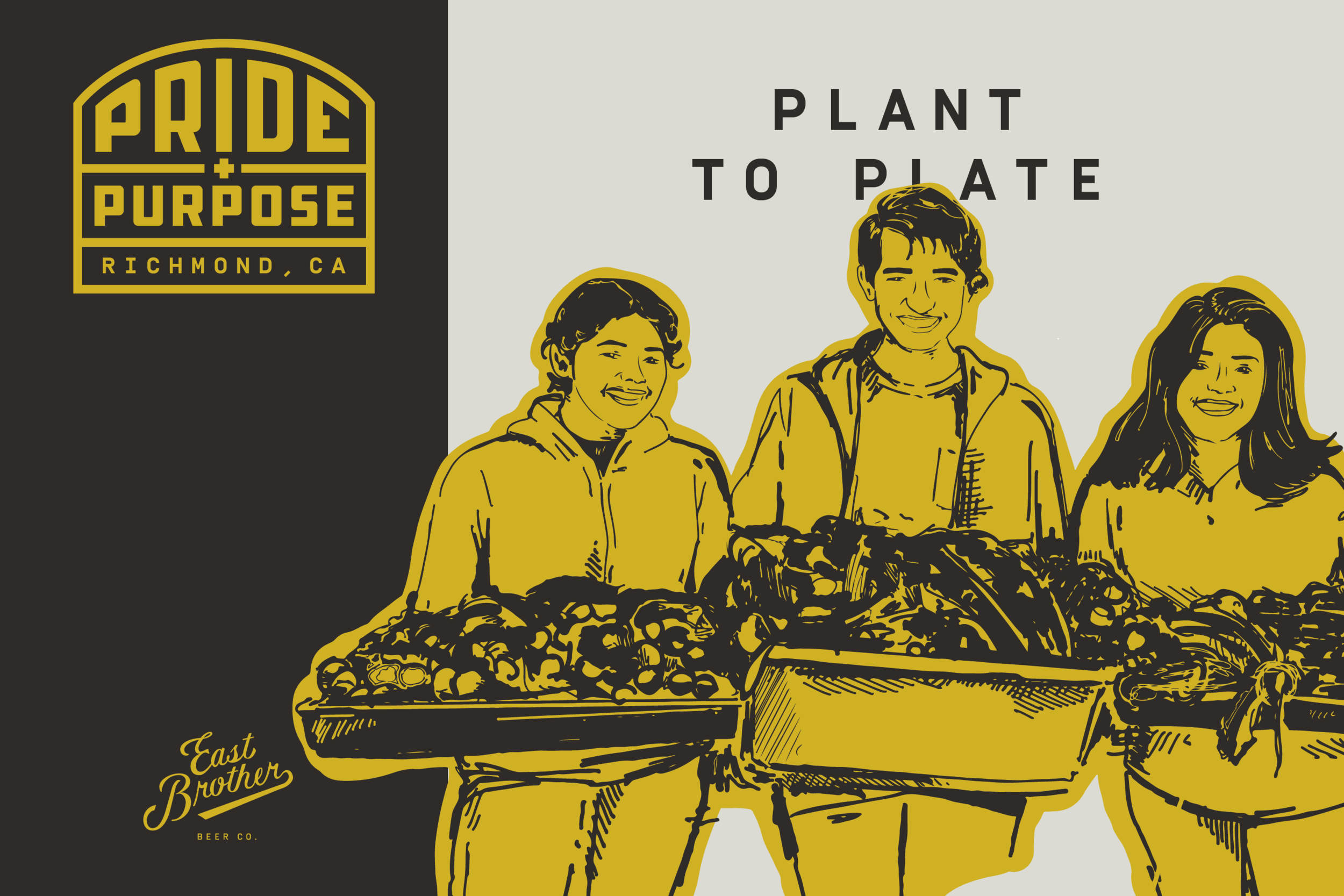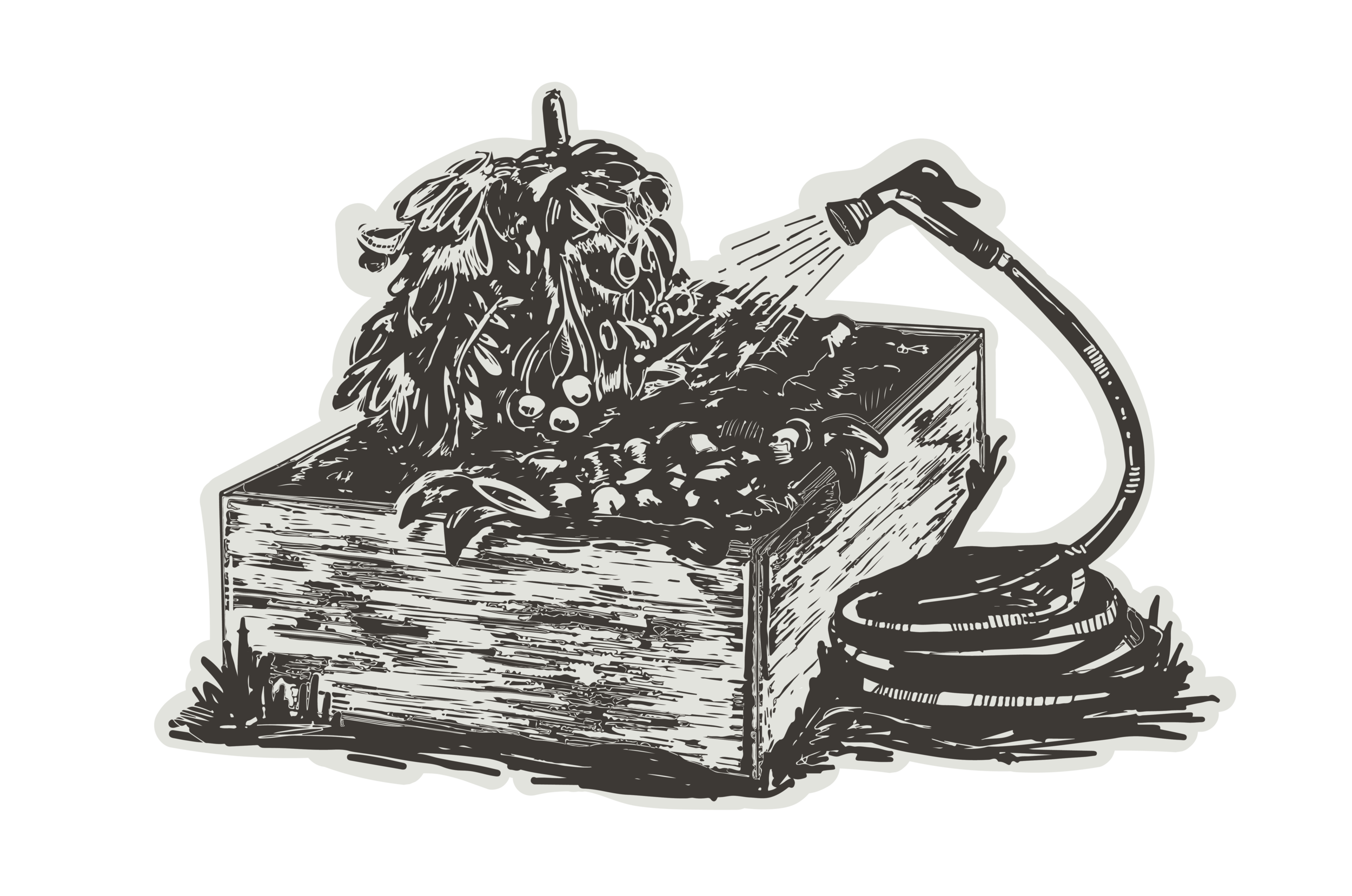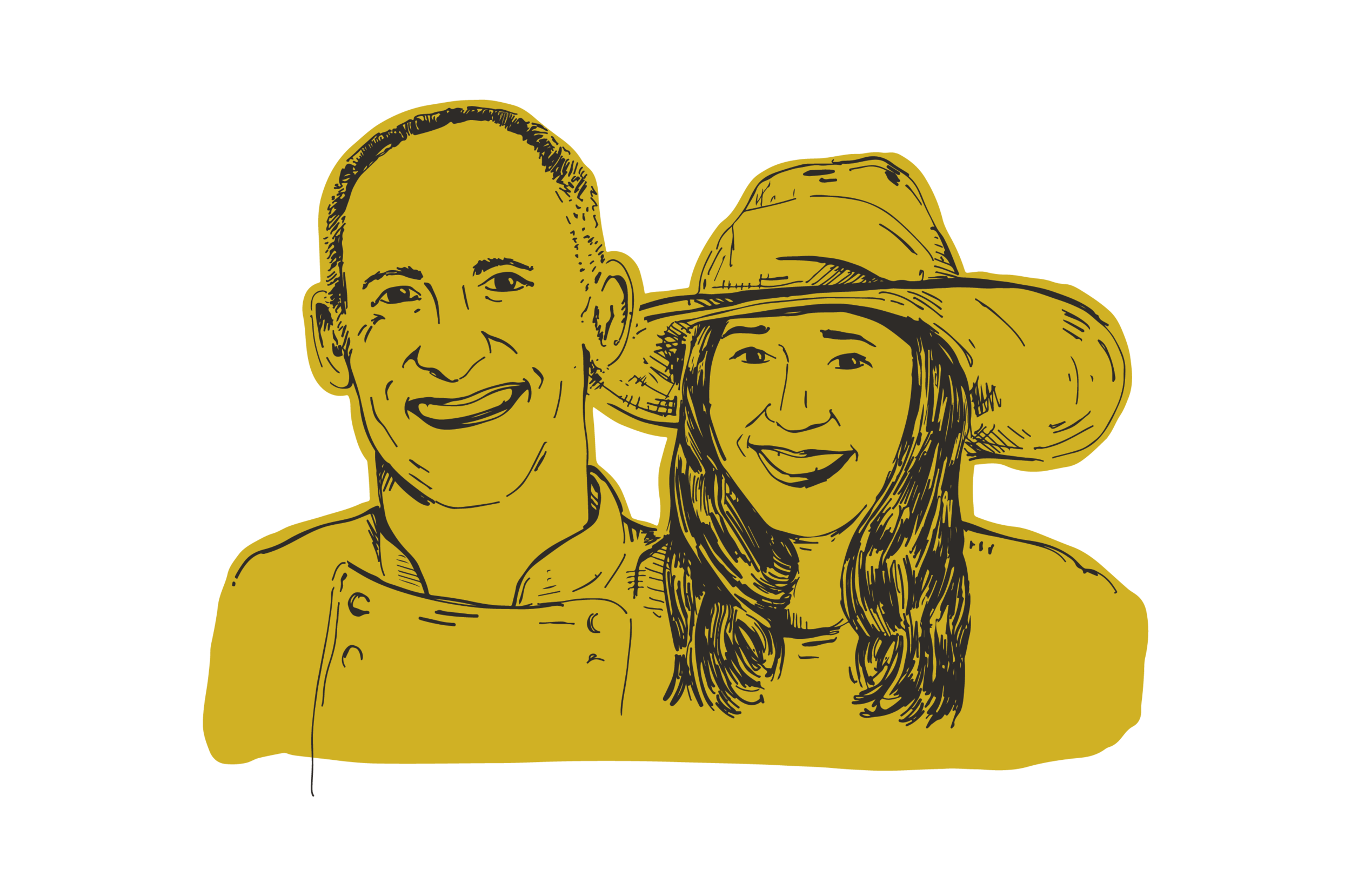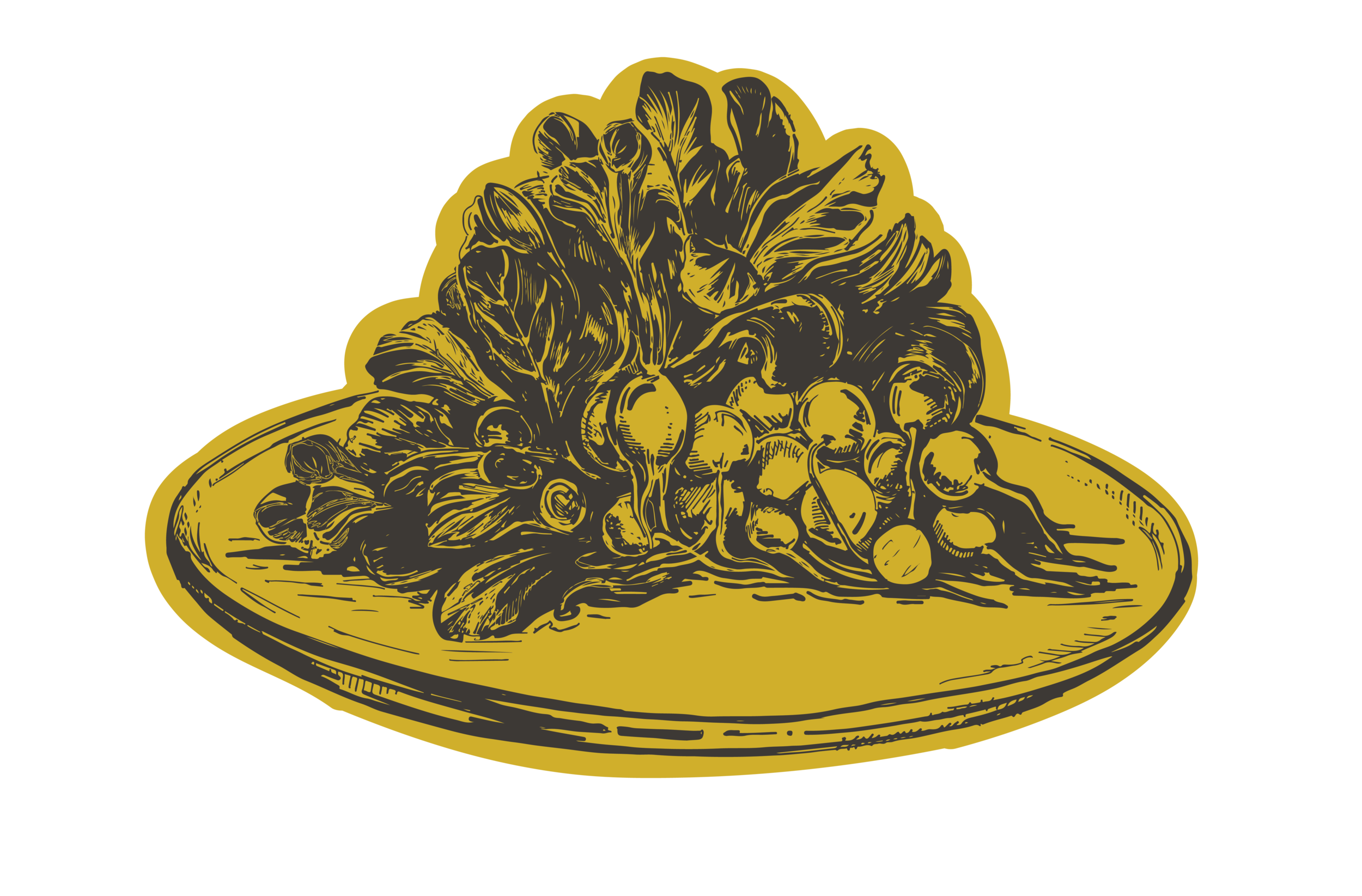What if the grain left over from brewing wasn’t actually “spent”? That’s the question asked by Dan Kurzrock and Jordan Schwartz, co-founders of ReGrained: an upcycled food production company
Living Your Values With RCF Connects
RCF Connects, formerly known as the Richmond Community Foundation, was formed after an industrial accident released a cloud of sulfuric acid upon the city.
Pride and Purpose: Plant to Plate
Kelli Barram and Arnon Oren Are Growing Youth at Plant to Plate
Creating an environment in which plants can flourish starts with the right soil. Similarly, a person’s attitudes, preferences, and behaviors are shaped early in life by foundational experiences, opportunities, and access. That’s why co-founders Kelli Barram and Arnon Oren created the Plant to Plate Internship Program.
“What we're doing is growing youth, their minds and skill sets, through the vehicle of a garden and a professional kitchen,” says Barram. The Richmond nonprofit selects 15 high school students each year for a 7-month paid internship and youth development program that aims to empower, train, and prepare participants not only for work in the food industry, but for life.
When it comes to matters of food, health, and conservation, advocates say the biggest gap is in education; meanwhile, kids from under-resourced backgrounds, like those Plant to Plate primarily serves, don’t have the same access to workforce opportunities and training as others. This comprehensive program teaches students the hard and soft skills necessary to grow food in the garden, prepare it in the kitchen, and serve it in a restaurant, but it also offers the tools to transform their relationship with food, finance, the job market, and even their own bodies and minds.
“It’s about problem-solving and communication skills; working as a team; managing stress; and being in community together, creating a network and an opportunity for them,” says Barram, who is also the program’ executive director and educator. Students learn gardening, kitchen basics, and both front and back of house restaurant operations—including knife skills, spices, recipe creation, and tasting—along with broadly applicable workforce training and financial management. But the program also takes a holistic approach to wellness, teaching nutrition and health as well as mindfulness and meditation. All the while, students get real, paid work experience before they’ve even received their high school diploma.
Barram met Oren, who owns and manages the restaurant and catering business Anaviv’s Table, at a fundraiser for Richmond nonprofits. At the time, Barram was the garden education specialist at Washington Elementary, and they connected over a mutual desire to expand local access to nutritious, organic food while educating and serving the community. Their partnership started with Barram supplying greens and herbs to Anaviv’s Table, but “I wanted to get involved in the community more in-depth,” says Oren, who is now Plant to Plate’s director and board president.
Barram and her colleague knew of a vacant, overgrown plot near Oren’s restaurant, and they began to envision a garden-to-table youth-development program. “There are plenty of garden and food programs for the younger kids, but not so many for high schoolers,” Oren recalls Barram saying at the time; this is especially true for those from under-resourced families, who don’t have access to other resources and enrichment programs. With the support of Oren and local nonprofit West County DIGS—which uses funding from grants and individual donations to serve school gardens in West Contra Costa—the first cohort started in January 2017, and the program is now in its fifth year.
From October through mid-April, students attend class in a raised-bed urban garden on Harbor Way; in the winter months, instruction moves to Anaviv’s Table. After establishing basic skills in a series of two-hour long evening sessions, students earn a $300 paid stipend by working 20 hours in the garden, restaurant, and/or kitchen, depending on their interests. Barram creates the curriculum, enlisting volunteer help from Richmond area professionals for certain portions, such as a recruiter who teaches resume creation and interviewing techniques.
Oren oversees the restaurant side, coordinating kitchen logistics and recruiting volunteers from his staff to help train students. “This is the most rewarding part, besides seeing the kids launching well and gaining a lot of good tools and empowerment,” he says. “Since our chefs mentor and volunteer their time to teach the kids, it empowered the employees in ways that I couldn’t imagine. Everyone throughout the [restaurant], even the dishwashers, had a connection to these kids, and it’s brought so much positivity to the business.”
While it starts with food, the skills students learn are “transferable to whatever context they're in … within the lens of what's going to be relevant to them in the next two to three years,” Barram adds, whether it’s their first job or cooking a meal in their college dorm room. Students learn everything from creative ways to use an egg to nutrition density, what makes a whole food, and navigating labels and grocery-store shopping; financial management training covers banking, the risks of credit cards, and keeping a budget.
“Within the framework of readying them, we actually give them a job. We teach them how to write a resume, and give them the experience to put on that resume,” Barram explains, “and we want to make sure we offer our interns an education about how to best manage the money they earn in our program.”
But perhaps the most impactful part is the mindfulness training, helping students cultivate a sound inner environment to manage the inevitable challenges of work and school that come their way. “We incorporate stress management psychoeducational tools, … and start every class with a moment of mindfulness,” Barram says. “They’re teenagers, so they’ll act like they hate it, … but if you ask them privately, 99% say [it’s] the one thing you cannot take away.”
Because the program is small, they can keep up with graduates, she adds, and “the most rewarding part is to see them grow up over time, to have been part of their journey, and to have hopefully played some role … in their development.”
Plant to Plate is open to applicants who are juniors or seniors in high school and live in the Richmond and San Pablo areas, recruiting from Kennedy, Richmond, and El Cerrito High Schools (priority is given to students who also qualify for assistance through the West Contra Costa Unified School District’s free and reduced lunch program). Those interested in participating, volunteering, or donating can learn more by visiting the program website or Instagram account; to apply, contact Barram through Instagram or at Plant2Plate.richmond@gmail.com.
Pride and Purpose: Desiree Heveroh
The first time Desiree Heveroh set foot on East Brother island, she knew she was going to live there, in the way you know things deep within your soul. What she couldn’t have predicted was how, a decade later, it would come about. The East Brother Light Station is the lovingly restored, 147-year-old Victorian lighthouse and inn that crowns the little island between the San Francisco and San Pablo Bays, and when the pandemic struck, someone had to quite literally keep the lights on. “It [felt like] fulfilling my destiny,” she says.
For the past year, Heveroh has served as the Light Station Keeper, working alongside Captain Jerrod Ward to build a unique partnership with the place and with each other. “We’re still very much in the heart of the Bay Area, and its hustle and bustle,” says Ward, who lives and works a full-time job in the city, “but when we’re here, we’re almost in this bubble. It’s like my little snowglobe.”
The Light Station is owned by the U.S. Coast Guard, but maintained by the East Brother Bed & Breakfast, the nonprofit inn that has been operating on the property since 1979. Typically, the innkeeper and a licensed Captain form a team that is responsible for maintaining the grounds and buildings. But when COVID-19 closed the inn to guests, the keepers cleared out—leaving the historic structures unattended in the face of the wind and water erosion that constantly threatens their disrepair.
In response, the nonprofit board created the volunteer keeper position; while Heveroh doesn’t discount the hardship caused by the pandemic, it also opened a once-in-a-lifetime pathway. The Visit Richmond Tourism Bureau where she had been working also closed, sending her a severance check; meanwhile, her building’s owner sold the space and bought out all the tenants. The keeper position offered lodging at the inn in exchange for handling maintenance and upkeep, and the way forward was clear. “Any minute I spend away from this gift, I can never get back, so I was happy to volunteer,” Heveroh says.
Former keeper John Barnett, who served for a record 7.5 years, recommended Ward for the Captain’s position, and on July 1, 2020, he and Heveroh moved onto the island. Ward spent the first few months training Heveroh on things like driving a boat, mechanical maintenance, and raising and lowering the hoist that is required to get boats on and off the island. What both describe as a seamless partnership was put to the test in April 2021, when the cable that provides the island’s sole source of power gave out. Not only did that mean almost no electricity, it also rendered the hoist that allows boats to enter and leave inoperable, but the community came to their rescue.
“Everyone who works on the water is aware of this place, and friends of mine who worked on tugboats, charter fishermen, and everybody in the maritime industry [was] reaching out … in order to fix it,” says Ward. When he was finally able to leave the island and return to his day job, Heveroh remained behind, “living back in time” with only a few hours of power each day provided by a Depression-era generator, but neither doubted her capabilities.
Ward visited regularly and brought supplies, and “I had a whole support group on the mainland,” Heveroh says. One of the board members “drove up to get an antique starter when the generator gave out, and talked me through how to replace it on video chat. The harbormaster had to roll it out on his boat because his engine had given out that day. Everyone on shore was making sure that I was okay.”
Besides, it was hardly the lighthouse’s first crisis. It was added to the National Register of Historic Places to save it from demolition in the late 1960s, when the Coast Guard had intended to automate the station and tear the building down. But public agencies had no funds for upkeep, and the lighthouse fell into disrepair. In response, members of the local community formed the nonprofit to restore the building and return it to public use.
Heveroh has been a board member for the past eight years and a volunteer for 10, starting as a member of the “Wicks”—the volunteer group named for the traditional wick-and-oil method once used to light the lamps—while also helping with marketing. In non-pandemic times, the Wicks spend the second Saturday of each month putting their various skills to use, from cleaning to electrical work, putting millions of dollars’ worth of work into restoring and maintaining the property.
Keeping the Light Station alive is not only important to the community, but a key part of historical preservation. “For the most part, lighthouses that are manned don’t exist anymore; they’re all automated,” Ward says. “[East Brother] is holding onto a traditional piece of history.”
It certainly inspired our brewery’s co-founders; one day while driving across the bridge, they looked left, and after seeing the island, they immediately knew what they wanted to call their business. “I appreciate a local brewery paying homage to the history of the city in their name,” Ward says. When we learned about the power crisis, we knew we had to help, so on May 5, we brought back our Freighter Series beers, donating 20% of sales to the station. Other local food and beverage businesses have joined the cause with fundraising promotions, and the station has set up a GoFundMe campaign; it’s raised over $83,000, but remains short of its $100,000 goal.
The inn expects to reopen to guests soon, but in the meantime, Heveroh and Ward have cherished the opportunity to build a uniquely intimate relationship with the place itself. “There's not going to be many people throughout history who have been out here without seeing guests,” Ward says. “For me,” says Heveroh, “it’s magical. And the world needs magic right now.”
Want to read more about Desiree and the light house? Check out the blog by our friend Dean at The Beerverse.
Celebrating International Women's Day with Menbere Aklilu
Pride & Purpose: Richmond Promise
The city of Richmond knows itself. We’ve seen it all before — great booms, big busts, the ebb and flow of a diverse community — and learned from our experiences. The only way forward these days is to move with intention in this ever-shrinking world. At East Brother Beer, we take pride in our great city and its storied history and go forward with purpose towards a bright future.
Pride & Purpose: The Richmond Museum of History
The city of Richmond knows itself. We’ve seen it all before — great booms, big busts, the ebb and flow of a diverse community — and learned from our experiences. The only way forward these days is to move with intention in this ever-shrinking world. At East Brother Beer, we take pride in our great city and its storied history and go forward with purpose towards a bright future.
Pride & Purpose: Quiche and Carry
The city of Richmond knows itself. We’ve seen it all before — great booms, big busts, the ebb and flow of a diverse community — and learned from our experiences. The only way forward these days is to move with intention in this ever-shrinking world. At East Brother Beer, we take pride in our great city and its storied history and go forward with purpose towards a bright future.
Pride & Purpose: Rich City RIDES
The change of a city is inevitable, and without a strong, loving hand to guide these transitions, a place’s history and citizens can be displaced. That’s why organizations like Richmond Main Street are so important — they look to our past and the people that have made Richmond’s history rich and work to keep our community intact as they shape the future of our city.
Pride & Purpose: Curbside Kitchen
Raynard and Russell Lozano came up in Richmond and from a young age were entrenched in the food culture of their home and hometown. Born to parents who immigrated from the Philippines and met and married in Richmond, food was the center of their upbringing, and you could say those early years are where the idea, and dream, of Curbside Kitchen began to take shape.
Pride & Purpose: R&R Coffee/Kim's Louisiana Fried Turkey & Stuff
The city of Richmond knows itself. We’ve seen it all before — great booms, big busts, the ebb and flow of a diverse community — and learned from our experiences. The only way forward these days is to move with intention in this ever-shrinking world. At East Brother Beer, we take pride in our great city and its storied history and go forward with purpose towards a bright future.













